SOUND ENGINEER AND MUSIC PRODUCER SCHOOL
Join us to study with profesionnals in a profesionally used space : At the heart of an active music studio in Brussels, Rubens Studio, the SAI provides a sound engineer and music producer curriculum mixing the necessary theory to understand the underlying basics with load of practice possibilities to learn hands on what is needed to be a professional sound engineer and music producer.
Our commitment : by following these courses weeks after weeks, with more than 1000 hours of studio time, you will reach the level of the best music producer and sound engineers.
The formation is made of different modules that will cover a wide variety of topics : from microphone placement to the usage of different DAW (Digital Audio Workstation) going thru compressors and sound behavior – you’ll have all the tools at disposition to enter to music world. More information about the different modules can be found on this website, reach out and visit us to get a taste of what you could learn here !
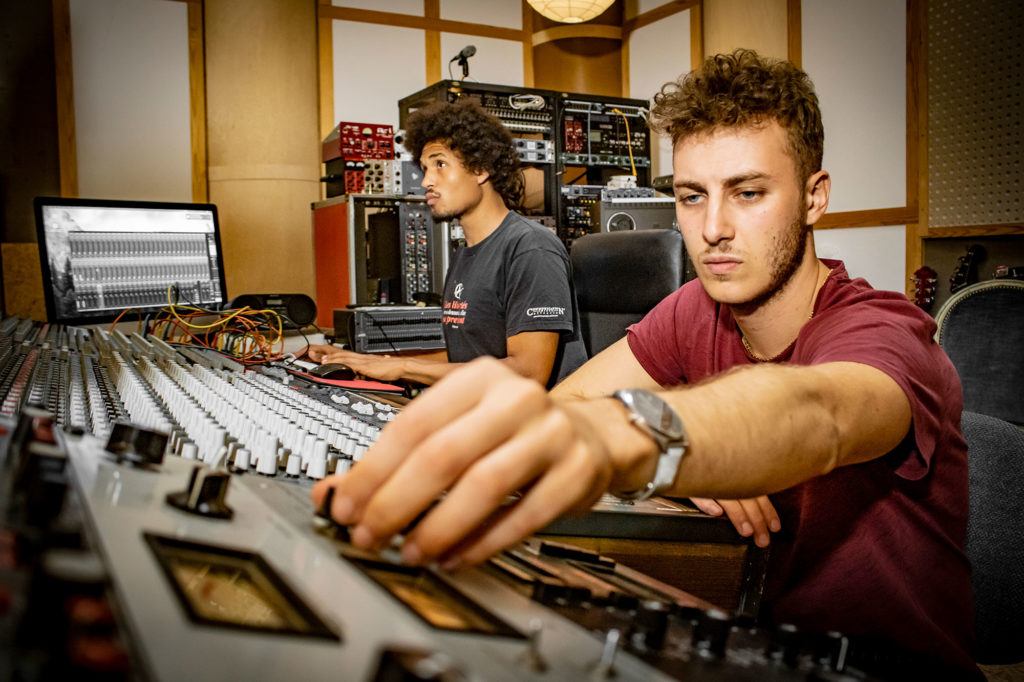

MUSIC PRODUCER DIPLOMA – 10 MODULES
The SAI organizes its classes around different modules. Each module is planned over 6 months time and classes take place one day per week per module (9h to 16h30), with additional access to the studio possible depending on the availability. The suggested schedule is two to three modules at a time, allowing you to finish the whole cycle in 2 years.
DJing
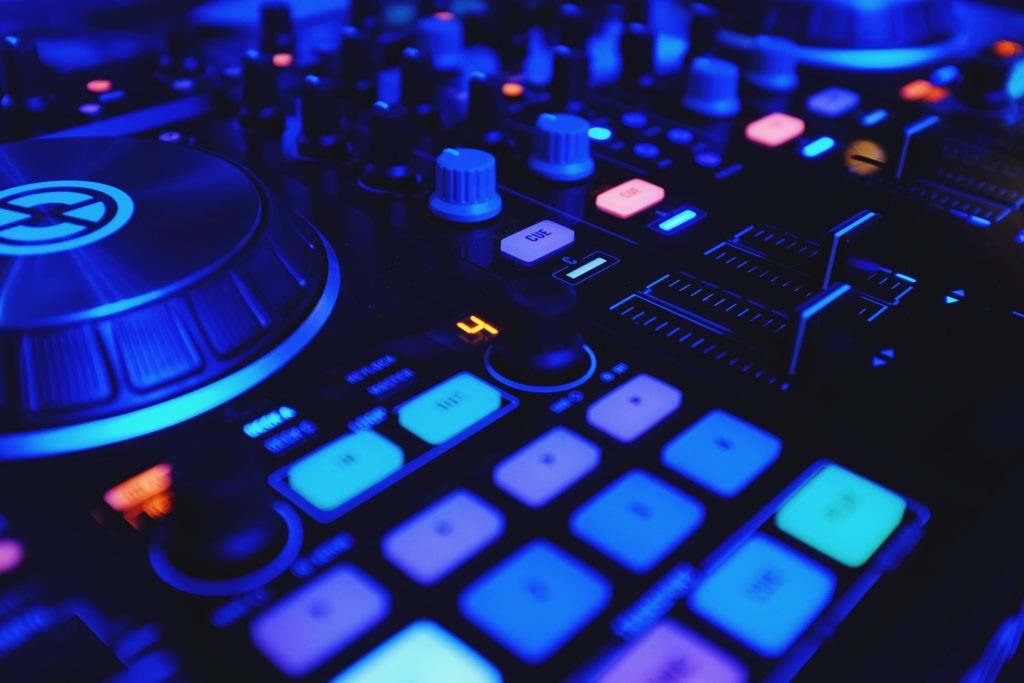
Are you passionate about electronic music, hip-hop, house or reggaeton? Do you dream of thrilling audiences on the dancefloor and creating memorable sets? Then the SAI Brussels DJing course is for you !
Why choose the DJing course at SAI Brussels? Whether you’re a beginner or a seasoned performer, this course offers comprehensive and accessible training, specially designed for young people aged 18 to 30 and over. Under the guidance of experienced professionals (Dj DArko & friends), you will learn to master the technical basics, develop your artistic identity and perform like a professional DJ.
Details
Are you passionate about electronic music, hip-hop, house or reggaeton? Do you dream of thrilling audiences on the dancefloor and creating memorable sets? Then the SAI Brussels DJing course is for you !
Why choose the DJing course at SAI Brussels? Whether you’re a beginner or a seasoned performer, this course offers comprehensive and accessible training, specially designed for young people aged 18 to 30 and over. Under the guidance of experienced professionals (Dj DArko & friends), you will learn to master the technical basics, develop your artistic identity and perform like a professional DJ.
Key Aspects of Being DJ:
- The basics of DJ equipment
- How CDJ decks, vinyl decks and controllers work.
- Introduction to essential software such as Serato, Rekordbox and Traktor.
- Installing and configuring equipment for smooth performances.
- Mixing techniques
- Transitioning between tracks to keep the audience captivated.
- Using effects (EQ, loops, filters, reverb, etc.).
- Building a coherent, dynamic set adapted to different audiences and moods.
- Creativity and artistic identity
- Choosing tracks and creating a unique playlist.
- Exploring different musical styles and genres to refine your sound signature.
- Advice on how to incorporate your own productions into your sets.
- Stage practice and professionalism
- Live simulations to gain confidence in front of an audience.
- Techniques for reading the mood of a crowd and adapting your performance in real time.
- Introduction to DJ marketing: social networks, booking and promotion.
- Course highlights :
- Intensive practical sessions: Professional equipment is available for you to learn and practise in real conditions.
- Personalised guidance: Our instructors are working DJs, ready to share their tips and guide-you every step of the way.
- Networking: Join a dynamic community and connect with other enthusiasts and professionals in the industry.
Who should attend?
The course is aimed at all young people aged 18 to 30 and over, whether they’re curious to discover DJing or want to perfect their skills. No previous experience is required – just a passion for music and a desire to learn.
Join us and take your first step towards the turntables! Dive into the world of DJing at SAI Brussels and turn your passion into talent. Sign up now and get ready to become the artist who is rocking the nights of Brussels and beyond
Sound Engineer 1
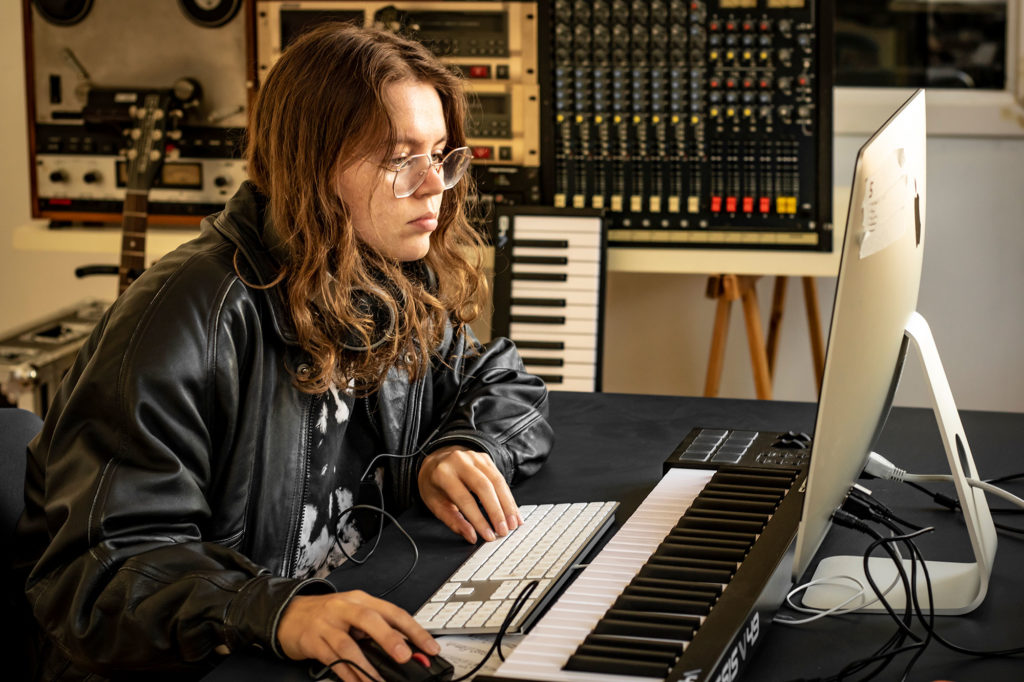
A sound engineer is a professional responsible for capturing, manipulating, and enhancing audio to achieve the highest quality sound for various media, including music, film, television, and live events.
This role requires a blend of technical expertise, artistic sensibility, and attention to detail.
This first module teaches the basics of sounds as well as the role of sound assistant in a music studio.
Details
Sound Engineer: The Maestro of Audio
A sound engineer is a professional responsible for capturing, manipulating, and enhancing audio to achieve the highest quality sound for various media, including music, film, television, and live events.
This role requires a blend of technical expertise, artistic sensibility, and attention to detail.
Key Aspects of Being a Sound Engineer:
- Technical Proficiency:
- Equipment Mastery: Operating recording devices, mixing consoles, microphones, and other audio equipment to capture and produce sound.
- Software Skills: Using digital audio workstations (DAWs) and audio editing software like Pro Tools, Logic Pro, and Ableton Live to edit and mix audio tracks.
- Recording:
- Studio Recording: Setting up and managing recording sessions, ensuring the optimal capture of instruments and vocals.
- Mixing and Mastering:
- Mixing: Combining multiple audio tracks, adjusting levels, EQ, and adding effects to create a polished final product.
- Mastering: Finalizing the audio mix by enhancing overall sound quality, ensuring consistency across playback systems, and preparing it for distribution for streaming, CD, Vinyl, … .
- Collaboration:
- Working with Artists: Collaborating with musicians, producers, and directors to achieve the desired sound and artistic vision.
- Problem-Solving: Quickly addressing technical issues and adapting to changing needs during recording sessions or live events.
Our opinion
A sound engineer plays a crucial role in the audio production process, ensuring that sound is captured and presented at its best and being an emotion catcher….
Combining technical skill with creative insight, sound engineers shape the auditory experience, making sure that every note, word, and sound effect resonates with clarity and impact.
Cursus
- Basics of sound engineering
- Basics of electrical engineering
- Microphone technology
- Keeping order in the studio
- Recording drums
- Recording guitar
- Recording piano and vocals
- Introduction to the studio
- Sound studio technology
- Recording tips
Sound Engineer 2
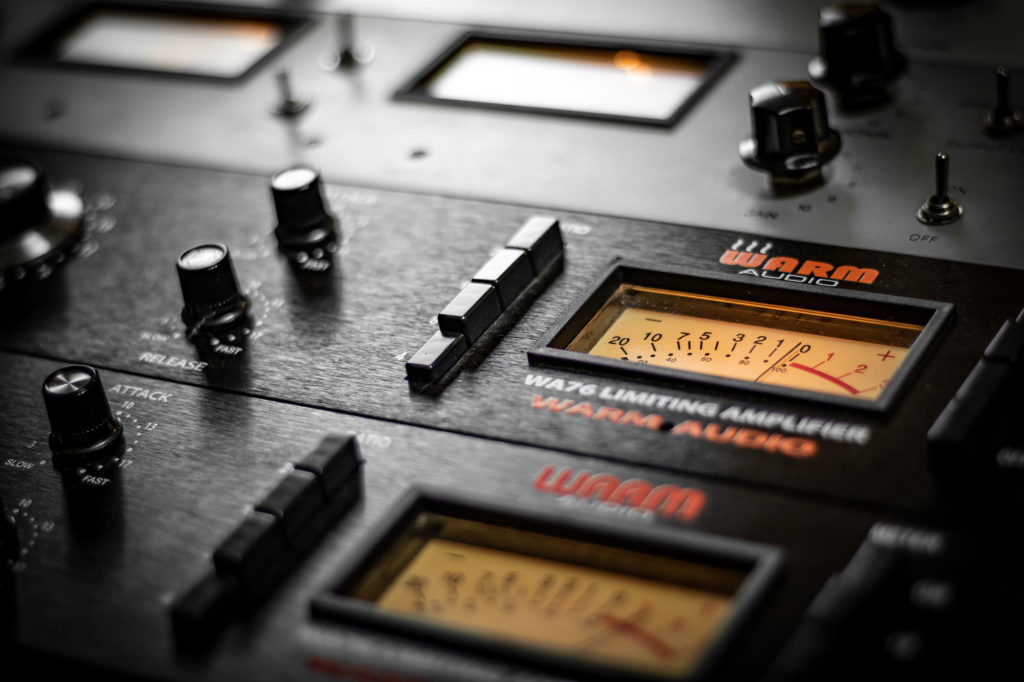
A sound engineer is a professional responsible for capturing, manipulating, and enhancing audio to achieve the highest quality sound for various media, including music, film, television, and live events.
This role requires a blend of technical expertise, artistic sensibility, and attention to detail.
In this module, you’ll dig into the next steps to take once you have a good quality recording in your hands : mixing techniques and tools will be your ally to get a great resulting mix.
Details
Sound Engineer: The Maestro of Audio
A sound engineer is a professional responsible for capturing, manipulating, and enhancing audio to achieve the highest quality sound for various media, including music, film, television, and live events.
This role requires a blend of technical expertise, artistic sensibility, and attention to detail.
Key Aspects of Being a Sound Engineer:
- Technical Proficiency:
- Equipment Mastery: Operating recording devices, mixing consoles, microphones, and other audio equipment to capture and produce sound.
- Software Skills: Using digital audio workstations (DAWs) and audio editing software like Pro Tools, Logic Pro, and Ableton Live to edit and mix audio tracks.
- Recording:
- Studio Recording: Setting up and managing recording sessions, ensuring the optimal capture of instruments and vocals.
- Mixing and Mastering:
- Mixing: Combining multiple audio tracks, adjusting levels, EQ, and adding effects to create a polished final product.
- Mastering: Finalizing the audio mix by enhancing overall sound quality, ensuring consistency across playback systems, and preparing it for distribution for streaming, CD, Vinyl, … .
- Collaboration:
- Working with Artists: Collaborating with musicians, producers, and directors to achieve the desired sound and artistic vision.
- Problem-Solving: Quickly addressing technical issues and adapting to changing needs during recording sessions or live events.
Our opinion
A sound engineer plays a crucial role in the audio production process, ensuring that sound is captured and presented at its best and being an emotion catcher….
Combining technical skill with creative insight, sound engineers shape the auditory experience, making sure that every note, word, and sound effect resonates with clarity and impact.
Cursus
- Assignment and organisation of the production
- Signal processing
- Dynamics
- Control amplifier
- Monitoring tools
- Mixing
- M/S and stereophony
- Surround practice
- Speakers
- Digital technology
Sound Engineer 3
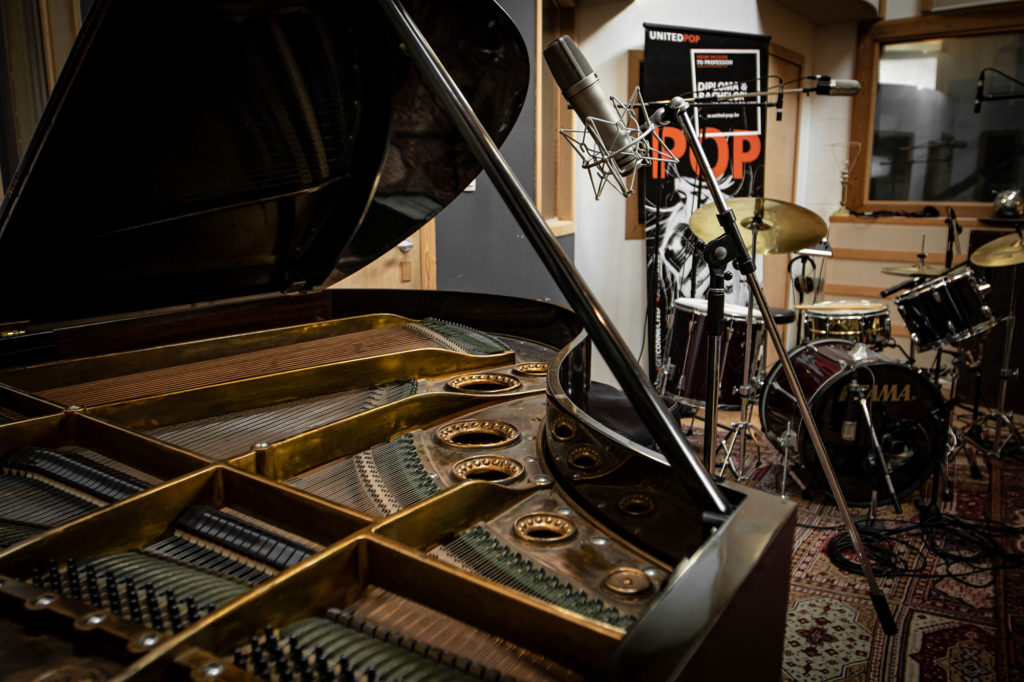
A sound engineer is a professional responsible for capturing, manipulating, and enhancing audio to achieve the highest quality sound for various media, including music, film, television, and live events.
This role requires a blend of technical expertise, artistic sensibility, and attention to detail.
The final module on the road of sound engineer : you’ll continue to learn more advance mixing techniques and discover the role of mastering in the creation of a finished track.
Details
Sound Engineer: The Maestro of Audio
A sound engineer is a professional responsible for capturing, manipulating, and enhancing audio to achieve the highest quality sound for various media, including music, film, television, and live events.
This role requires a blend of technical expertise, artistic sensibility, and attention to detail.
Key Aspects of Being a Sound Engineer:
- Technical Proficiency:
- Equipment Mastery: Operating recording devices, mixing consoles, microphones, and other audio equipment to capture and produce sound.
- Software Skills: Using digital audio workstations (DAWs) and audio editing software like Pro Tools, Logic Pro, and Ableton Live to edit and mix audio tracks.
- Recording:
- Studio Recording: Setting up and managing recording sessions, ensuring the optimal capture of instruments and vocals.
- Mixing and Mastering:
- Mixing: Combining multiple audio tracks, adjusting levels, EQ, and adding effects to create a polished final product.
- Mastering: Finalizing the audio mix by enhancing overall sound quality, ensuring consistency across playback systems, and preparing it for distribution for streaming, CD, Vinyl, … .
- Collaboration:
- Working with Artists: Collaborating with musicians, producers, and directors to achieve the desired sound and artistic vision.
- Problem-Solving: Quickly addressing technical issues and adapting to changing needs during recording sessions or live events.
Our opinion
A sound engineer plays a crucial role in the audio production process, ensuring that sound is captured and presented at its best and being an emotion catcher….
Combining technical skill with creative insight, sound engineers shape the auditory experience, making sure that every note, word, and sound effect resonates with clarity and impact.
Cursus
- Assignment and organisation of production
- Pre-production
- Advanced recording techniques (layering, re-amping)
- Broadcasting
- Communication circuits
- Mastering
- Room acoustics
- Analysis and submission of mixes
- Management
Arrangement and Composition
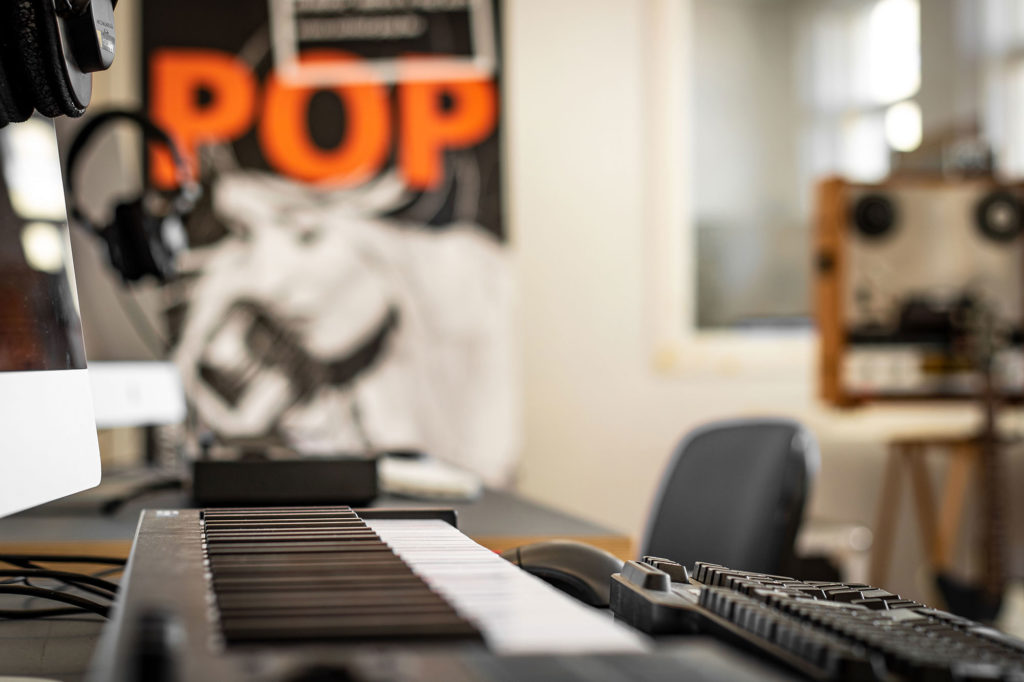
Become a composer arranger and a musician who not only writes original music but also adapts and organizes musical pieces for different ensembles and contexts.
This dual role requires a deep understanding of musical theory, creativity, and technical skill to bring musical ideas to life and tailor them for specific performances or recordings.
Details
Become a composer arranger and a musician who not only writes original music but also adapts and organizes musical pieces for different ensembles and contexts.
This dual role requires a deep understanding of musical theory, creativity, and technical skill to bring musical ideas to life and tailor them for specific performances or recordings.
Key Aspects of Being a Composer Arranger:
- Composition:
- Original Works: Crafting new melodies, harmonies, and rhythms to create unique pieces of music.
- Musical Expression: Conveying emotions and stories through innovative musical ideas and structures.
- Arrangement:
- Adapting Music: Rearranging existing pieces to suit different instruments, voices, or styles, ensuring the music works effectively in its new form.
- Orchestration: Deciding how to distribute the music across various instruments and voices, enhancing the overall sound and impact.
- Technical Skill:
- Music Theory: Utilizing a strong foundation in music theory to construct and deconstruct compositions.
- Notation and Software: Proficiency in music notation software like Logic Pro and Ableton Live to communicate musical ideas clearly.
- Collaboration:
- Working with Musicians: Collaborating with performers, conductors, and producers to refine and perfect the music.
- Adapting to Needs: Tailoring compositions and arrangements to meet the specific requirements of a performance or recording session.
Our opinion
Being a composer arranger involves a blend of creativity and technical acumen, allowing musicians to craft original works and reimagine existing ones.
This role is crucial in shaping how music is experienced, providing both the blueprint and the detailed plan for musical performances that resonate with audiences.
Cursus
- Rhythm & Metric
- Notation
- Intervals
- Major Tonality
- Minor Tonality
- Minor Tonality & Triads
- Melodic & Motivic Development
- Form & Lead Sheets
- Lead sheets & Repetitive Layers
- Triads & Cadences
- Tetrachords & Full Cadence
- Major Harmonies & Tone Substitutes
- Ecclesiastical Modes
- Odd Meters & Polymetric
- Harmony & Aural Training
Sound Design
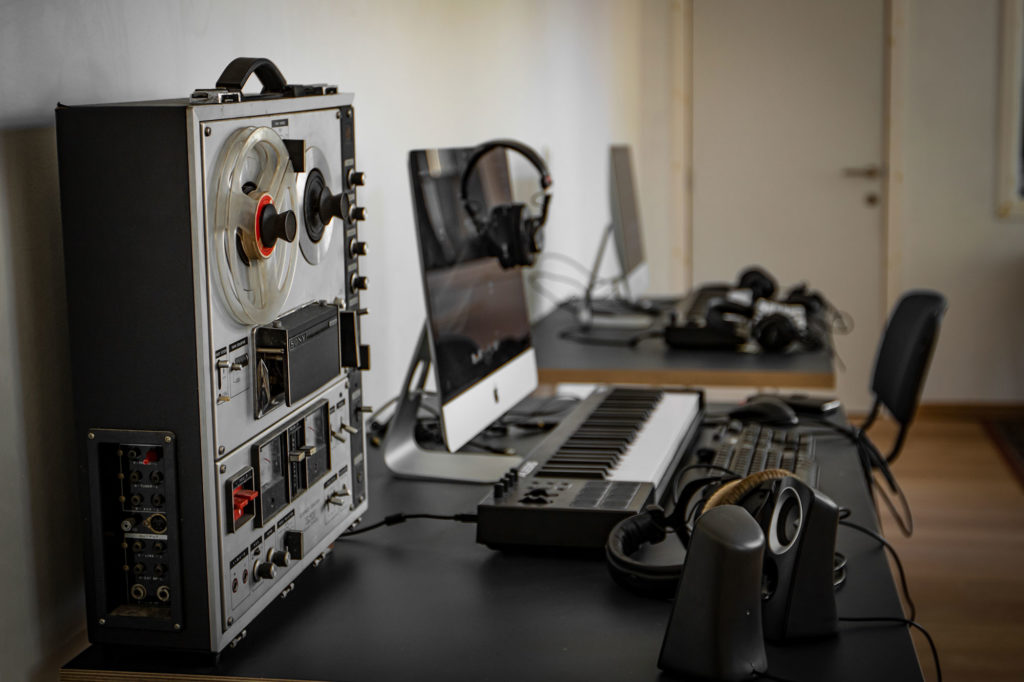
Become a sound designer and master the art and practice of creating audio elements for various forms of media, including films, television, video games, theater, and music.
It involves generating, recording, manipulating, and integrating sounds to enhance storytelling and evoke emotions.
Details
- NI Kontakt 4
- FM synthesis, Wavetable synthesis, NI FM8
- Granular synthesis, additive synthesis, Absynth and Alchemy
- Advanced mixing: Tempo and remix, mix groups
- Reaktor
- Advanced musical sound design: Physical modelling of synths, wind instruments and stringed
instruments - Ableton, Operator
Beat Design
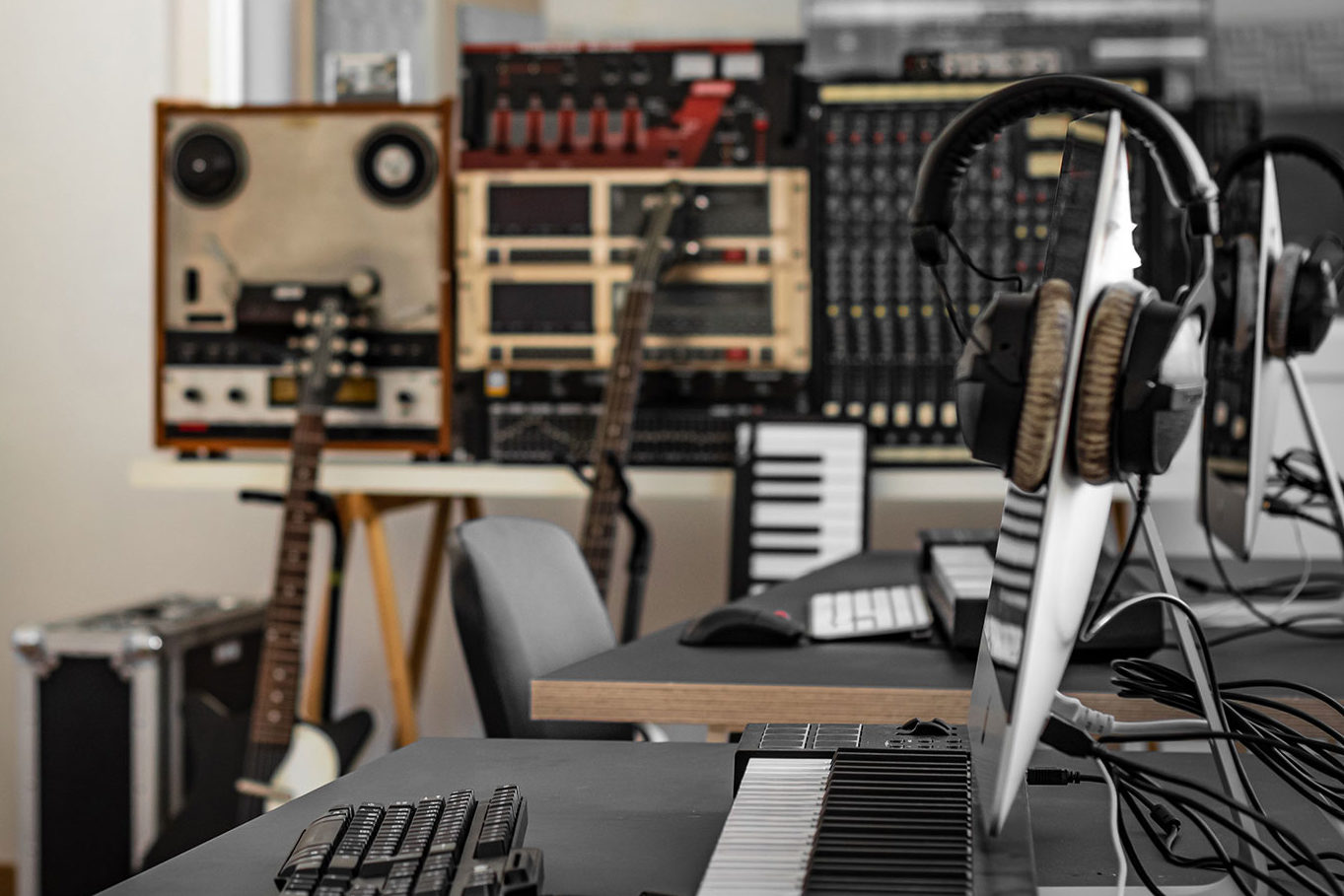
Become a beat maker and a music producer who specializes in creating beats and the sounds of the beats. Create the rhythmic backbone of a track using a combination of software like Ableton and Logic Pro , digital instruments, samples and acoustic instruments. Design and produce the foundational elements that give a song its groove and drive, crafting drum patterns, basslines, utilizing and manipulating audio samples to create unique sounds and textures
Details
Beat Maker: Crafting the Soundscape
Become a beat maker and a music producer who specializes in creating beats, the rhythmic backbone of a track.
Using a combination of software, digital instruments, and sometimes traditional instruments, beat makers design and produce the foundational elements that give a song its groove and drive.
Key Aspects of a Beat Maker’s Craft:
- Rhythm and Melody:
- Beat Creation: Crafting drum patterns, basslines, and melodic loops that form the core structure of a song.
- Sample Manipulation: Utilizing and manipulating audio samples to create unique sounds and textures.
- Technological Proficiency:
- Digital Audio Workstations (DAWs): like Ableton Live, Logic Pro to compose, arrange, and mix beats.
- Sound Design: Creating and shaping sounds using synthesizers, effects, and other digital tools.
- Creativity and Innovation:
- Genre Versatility: Producing beats across various genres such as hip-hop, EDM, pop, and more, showcasing versatility and creativity.
- Collaborative Spirit: Working with artists, songwriters, and other producers to develop full tracks and bring musical ideas to life.
Our opinion
Beat makers are essential to modern music production, blending technical skill with creative flair to produce the beats that define today’s musical landscape.
Their work not only sets the rhythm but also infuses tracks with unique character and energy.
Cursus
- Logic crash module (1): MIDI, setup and drummer
- Logic crash module (2): audio, recording
- Patterns in Ultrabeat, Drum Machine Designer, Distortion
- Drum loops, tempo and timing, rhythm, scales
- Automation, controller, event list, melody and song structure
- Reverb, delay, dub sounds, harmony
- Battery, transient designer / enveloper
- MIDI FX, arpeggiator, MIDI environment, sound synthesis (2), Techno
- Amps and pedals, Guitar Rig 4, Pop
- Mixing techniques, D&B, listening practice
Live Mixing
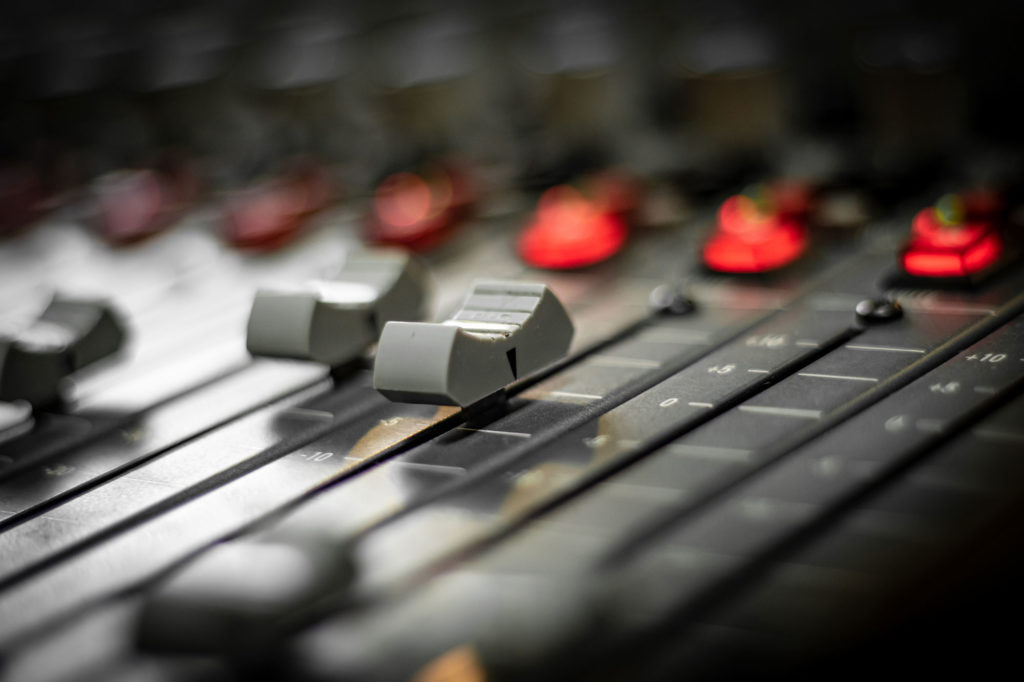
The live mixing engineer plays an essential role in creating an optimal auditory experience for both the audience and performers. Their technical expertise, ability to work under pressure, and keen attention to detail greatly contribute to the success of live performances.
You’ll be training on both analog and digital consoles, surrounded by experienced engineers, to have a maximum of hands on experience and practice in our studios.
Details
Key Aspects of Being a Live Mixing Sound Engineer
- Preparation:
- Sound Checks: Conducting thorough sound checks before the performance to balance levels and address potential issues.
- Equipment Setup: Setting up and configuring microphones, speakers, mixing consoles, and other audio equipment to suit the venue and performance requirements.
- Real-Time Mixing:
- Adjusting Levels: Continuously monitoring and adjusting audio levels, EQ, and effects during the performance to maintain sound quality.
- Problem Solving: Quickly identifying and resolving audio issues such as feedback, distortion, or equipment malfunctions and acoustic room answers.
- Collaboration:
- Working with Performers: Coordinating with musicians, vocalists, and other performers to meet their onstage audio needs and preferences.
- Team Coordination: Collaborating with stage managers, lighting technicians, and other crew members to ensure a seamless show.
- Technical Proficiency:
- Equipment Knowledge: Proficiency in using live sound equipment, including analog and digital mixing consoles, signal processors, and wireless systems.
- Acoustic Understanding: Adapting to different venue acoustics to optimize sound quality for the audience.
Our opinion
A live mixing sound engineer is crucial to the success of live events, ensuring that the audience hears a clear, balanced, and immersive sound experience.
This role combines technical skill, adaptability, and a keen ear, making live performances sound professional and polished.
Music Management
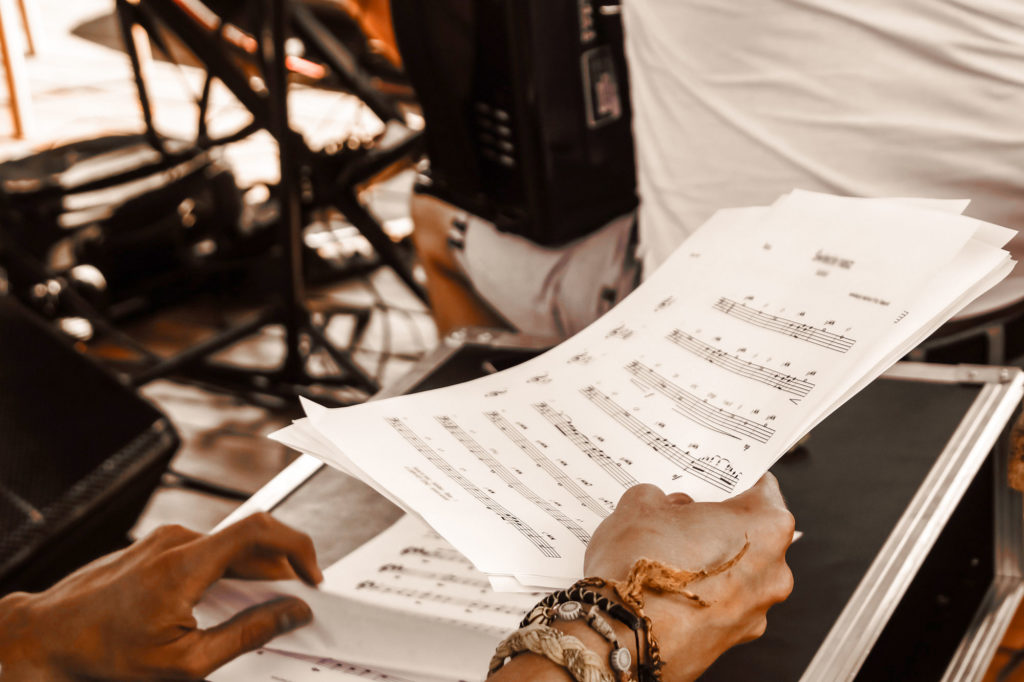
A music manager plays a vital role in the career development and day-to-day business affairs of musicians, bands, or other musical artists.
By handling the business side of an artist’s career, music managers allow artists to focus on their creative work, ensuring they can thrive both artistically and commercially. The role demands a mix of business acumen, industry knowledge, and personal dedication to the artist’s success
Details
A music manager plays a vital role in the career development and day-to-day business affairs of musicians, bands, or other musical artists.
Key Aspects of Being a Music Manager:
- Career Development:
- Strategic Planning: Develop long-term career goals and strategies for the artist.
- Brand Building: Enhance the artist’s public image and brand through media appearances, social media, and other promotional activities.
- Business Management:
- Contract Negotiation: Negotiate contracts with record labels, promoters, and other stakeholders.
- Financial Management: Oversee the artist’s finances, including budgeting, accounting, and financial planning.
- Revenue Streams: Identify and develop multiple revenue streams, such as music sales, touring, merchandise, and endorsements.
- Marketing and Promotion:
- Publicity Campaigns: Plan and execute marketing and publicity campaigns to promote the artist’s music and tours.
- Media Relations: Maintain relationships with media outlets, such as radio stations, magazines, and online platforms.
- Tour Management:
- Tour Planning: Organize and coordinate tours, including scheduling dates, booking venues, and arranging transportation and accommodations.
- Logistics: Manage the logistical aspects of touring to ensure smooth operations.
- Talent Development:
- Creative Guidance: Provide input on artistic decisions, such as song selection, album production, and live performances.
- Collaborations: Facilitate collaborations with other artists, producers, and songwriters.
- Legal and Compliance:
- Legal Oversight: Ensure all activities comply with legal requirements and manage legal issues as they arise.
- Rights Management: Oversee the management of intellectual property rights, including copyrights and trademarks.
- Industry Knowledge:
- Music Industry: In-depth understanding of the music industry, including current trends and key players.
- Business Acumen: Strong business skills to manage contracts, finances, and strategic planning.
- Networking and Relationships:
- Networking: Ability to build and maintain relationships with industry professionals, media, and fans.
- Communication: Excellent communication skills for negotiating deals and promoting the artist.
- Organizational Skills:
- Multitasking: Ability to manage multiple tasks and projects simultaneously.
- Detail-Oriented: Attention to detail in managing logistics, finances, and legal matters.
- Leadership and Guidance:
- Decision Making: Strong decision-making skills to guide the artist’s career.
- Mentorship: Ability to provide mentorship and support to the artist.
Our opinion
A music manager is crucial in helping artists navigate the complexities of the music industry and achieve their career goals. By handling the business side of an artist’s career, music managers allow artists to focus on their creative work, ensuring they can thrive both artistically and commercially. The role demands a mix of business acumen, industry knowledge, and personal dedication to the artist’s success.
Music Marketing

The Music Marketing module is fully integrated into the pedagogical continuity of the SAI Brussels program.
It provides students with a comprehensive understanding of how to position, promote and develop a music project in
today’s professional music industry.
This module connects artistic creation, music production and the strategic and economic realities of the
contemporary music business.
Details
Module Overview
The Music Marketing module is fully integrated into the pedagogical continuity of the SAI Brussels program. It provides students with a comprehensive understanding of how to position, promote and develop a music project in today’s professional music industry. This module connects artistic creation, music production and the strategic and economic realities of the contemporary music business.
Learning Objectives
• Understand the fundamentals of music marketing
• Define a strong and coherent artistic identity
• Build structured release strategies (single, EP, album)
• Master digital promotion tools
• Develop a long-term vision for a music project
Module Content
• Artistic branding and storytelling
• Positioning and target audience definition
• Release strategies and planning
• Streaming platform marketing
• Social media and content creation
• Press relations, playlists and influence
• Digital advertising fundamentals
• Data analysis and performance tracking
Skills Acquired
By the end of this module, students will be able to:
• Design a marketing strategy adapted to their music project
• Build a coherent artistic image and narrative
• Plan and manage a music release
• Use digital promotion tools independently
• Analyze results and adjust strategies accordingly
Teaching Approach
This module follows a hands-on and professional approach, using real-world case studies, current industry
examples and the development of the student’s own music project.
MASTERCLASSES
Additionally to the Music Producer modules, the SAI organizes masterclasses on specific topic. Those masterclasses are shorter than regular module and focus on specific needs, diving deep into the details of each tool/method !
Those masterclasses spread on two months one day per week (8 days), except the home studio producer which last 3 months (12 days). You can check which masterclasses are planned in the event section below, feel free to contact us for more information or already register if you’re planning to join !
If you would like to subscribe to a masterclass and you’re not seeing it in the list of events below, please get in touch with us, it might just be in preparation !
If you register to several masterclasses at once, you’ll get a discount : -10% as of two masterclasses, -15% as of 4 masterclasses – do get in touch with us if this is the case, before paying, to validate the final amount !
Home Studio Producer
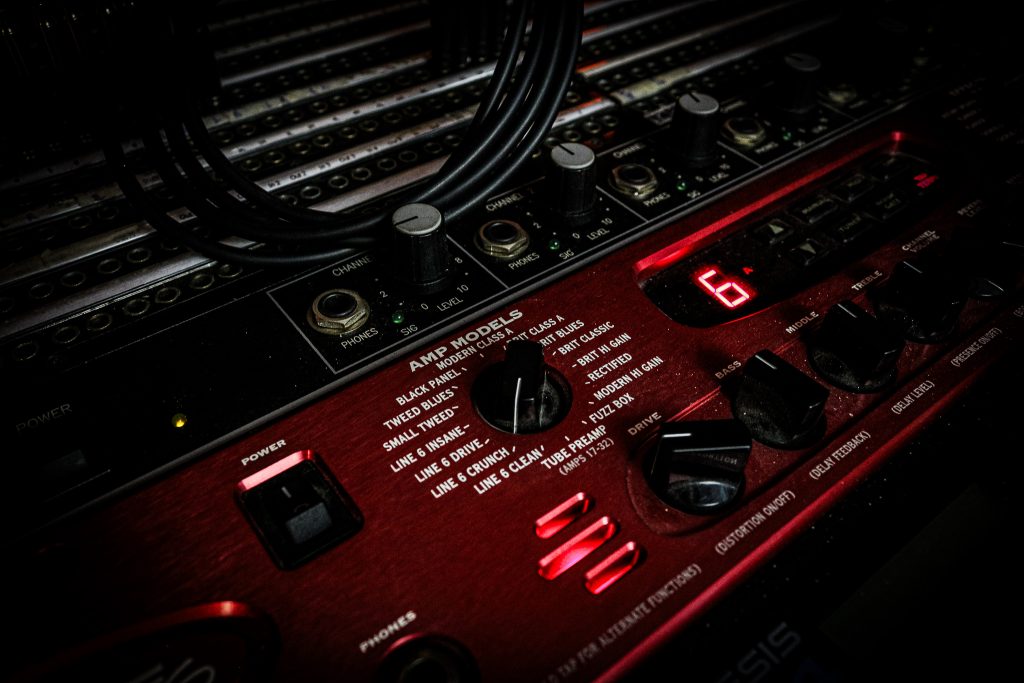
Next masterlcasses : see the “events” section below
Pro Tools

Next masterlcasses : please contact us !
FL Studio

Next masterlcasses : see the “events” section below
Ableton Live

Next masterlcasses : see the “events” section below
Cubase

Next masterlcasses : please contact us !
DJ Live
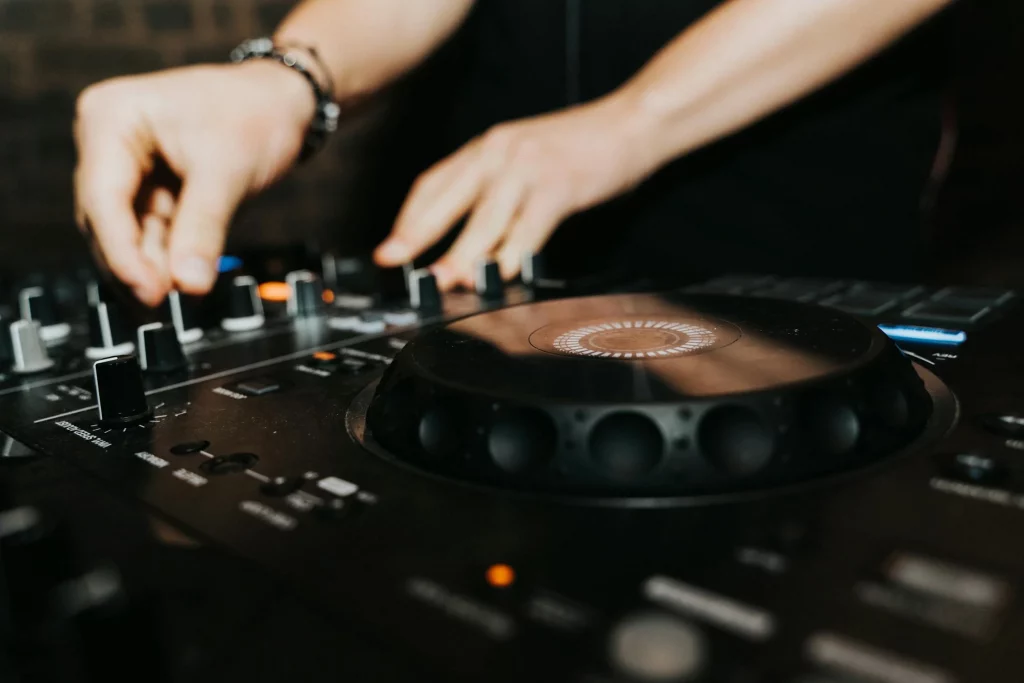
Next masterlcasses : see the “events” section below
EVENTS
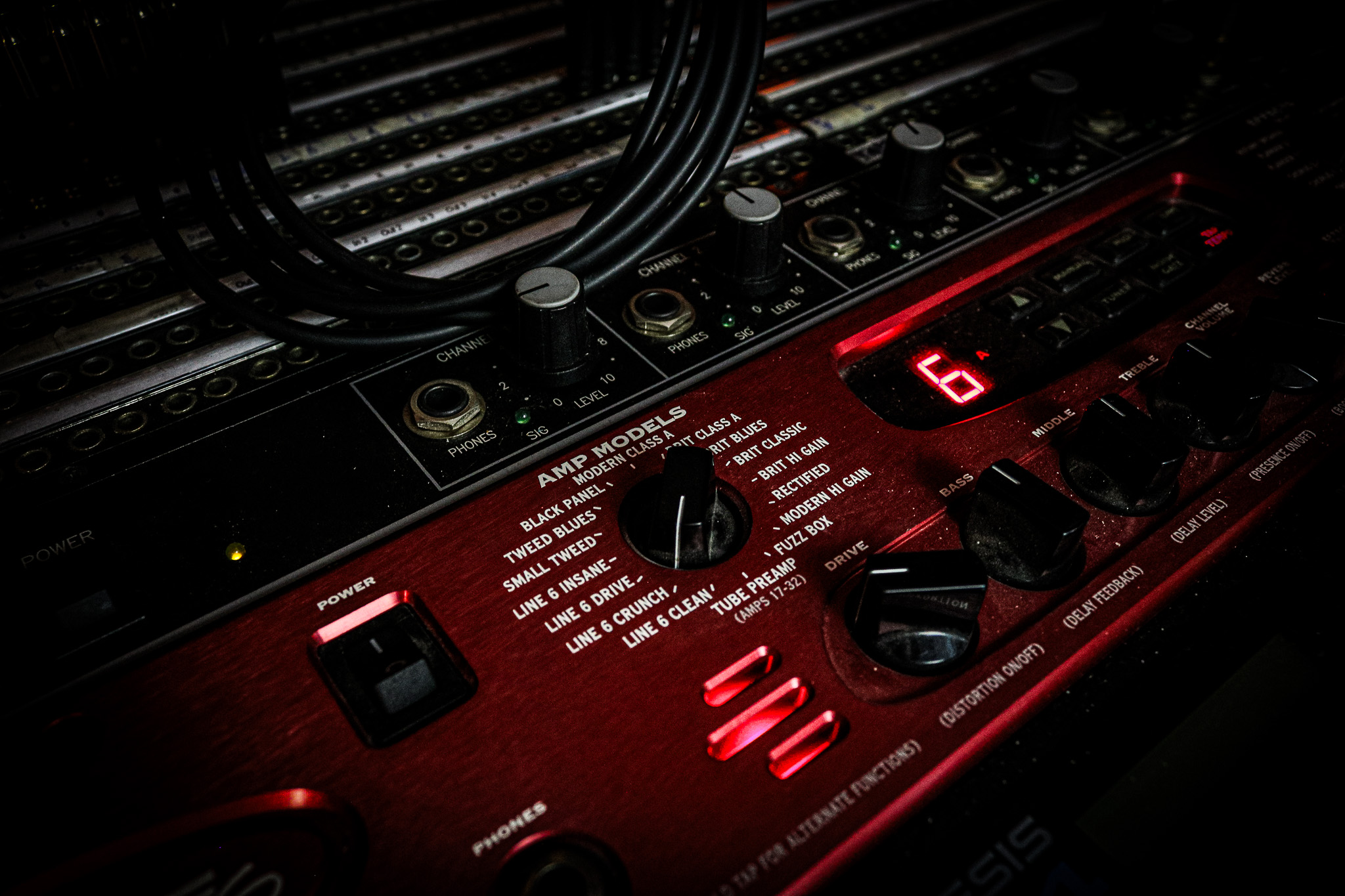
Masterclass Home Studio Producer October to December 2025
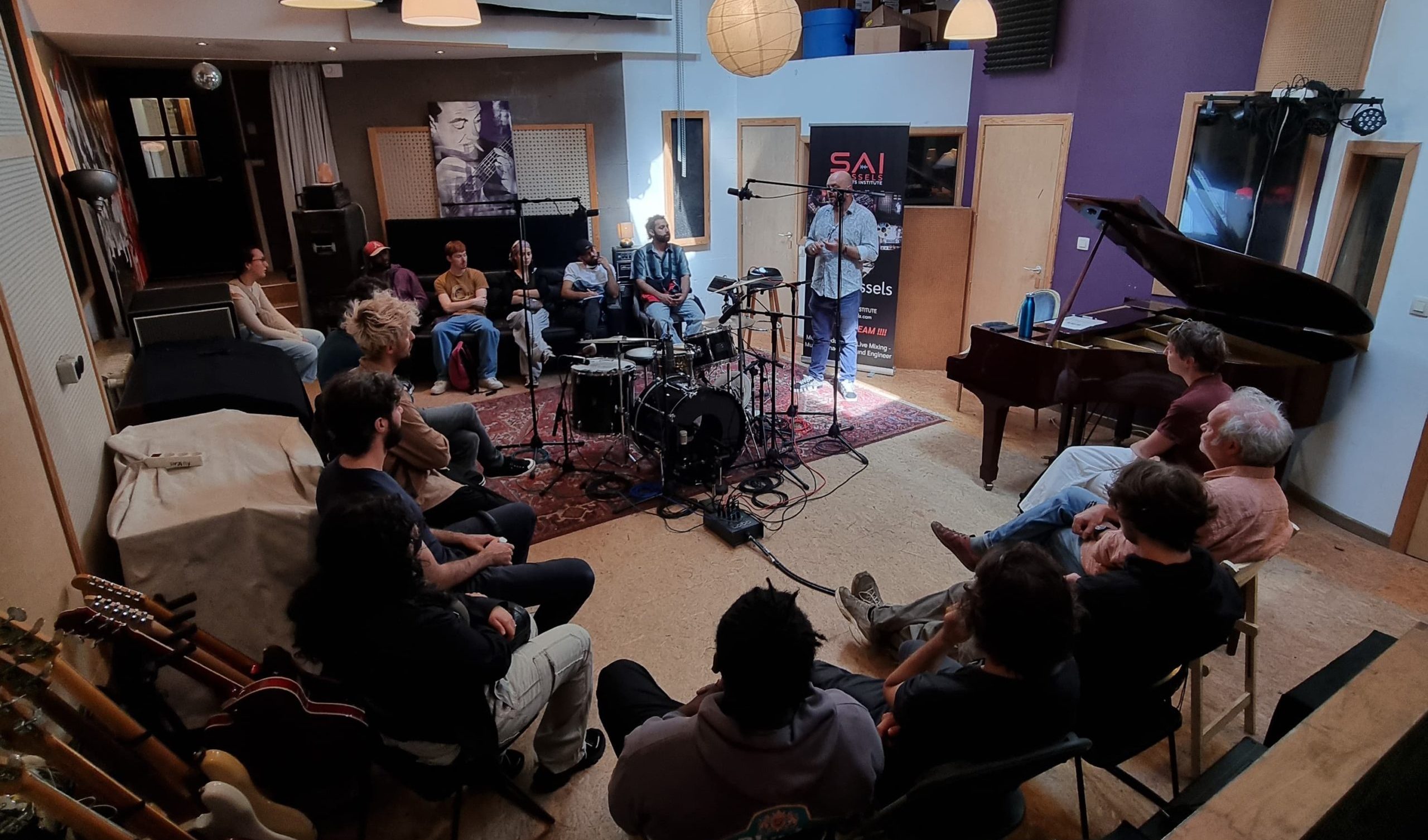
Open day 31/01/2026 – Free workshops and school presentation

Masterclass Ableton February to April 2026
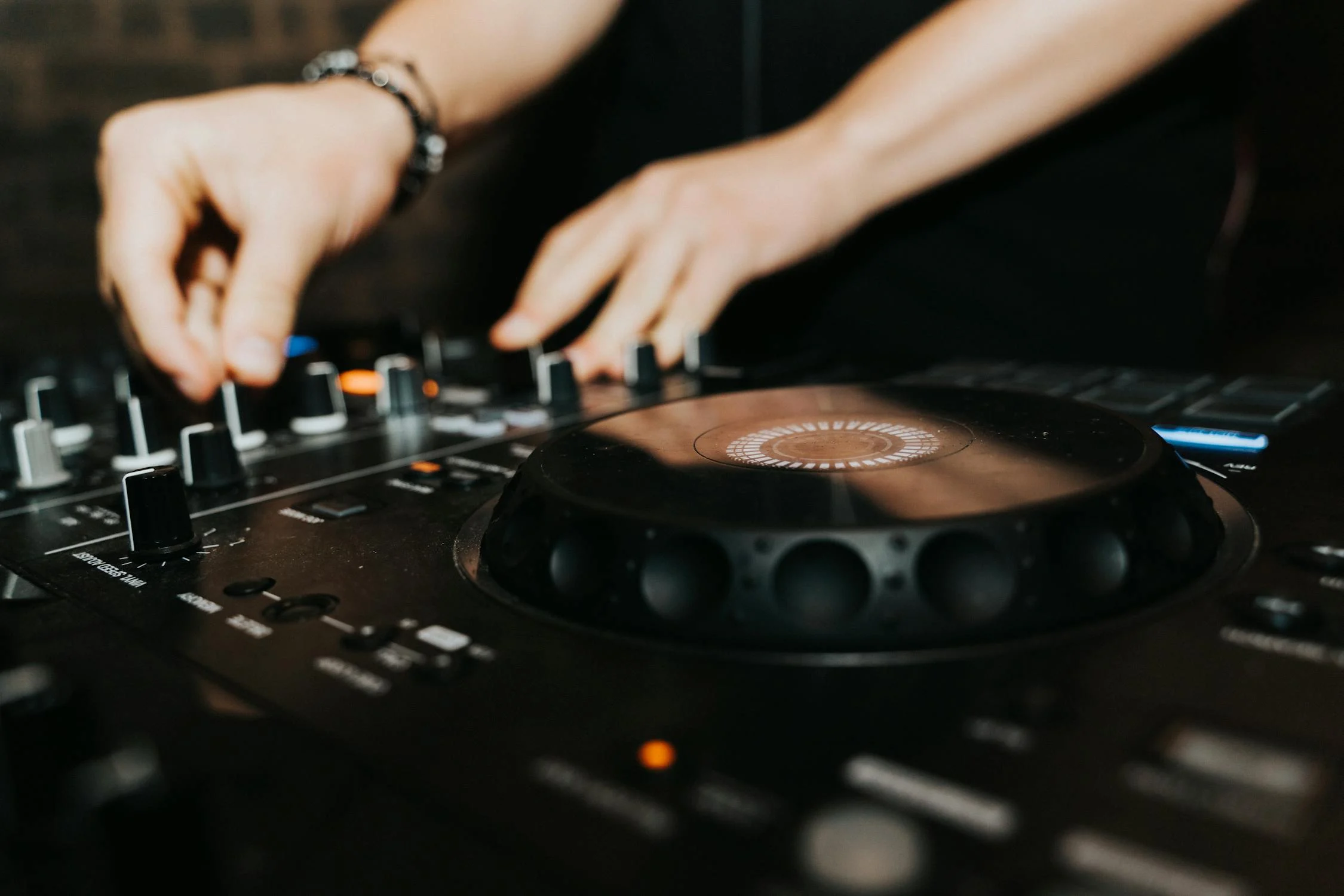
Masterclass DJ Live February to April 2026

Masterclass FL Studio February to April 2026

Masterclass Home Studio Producer February to May 2026
GALLERY
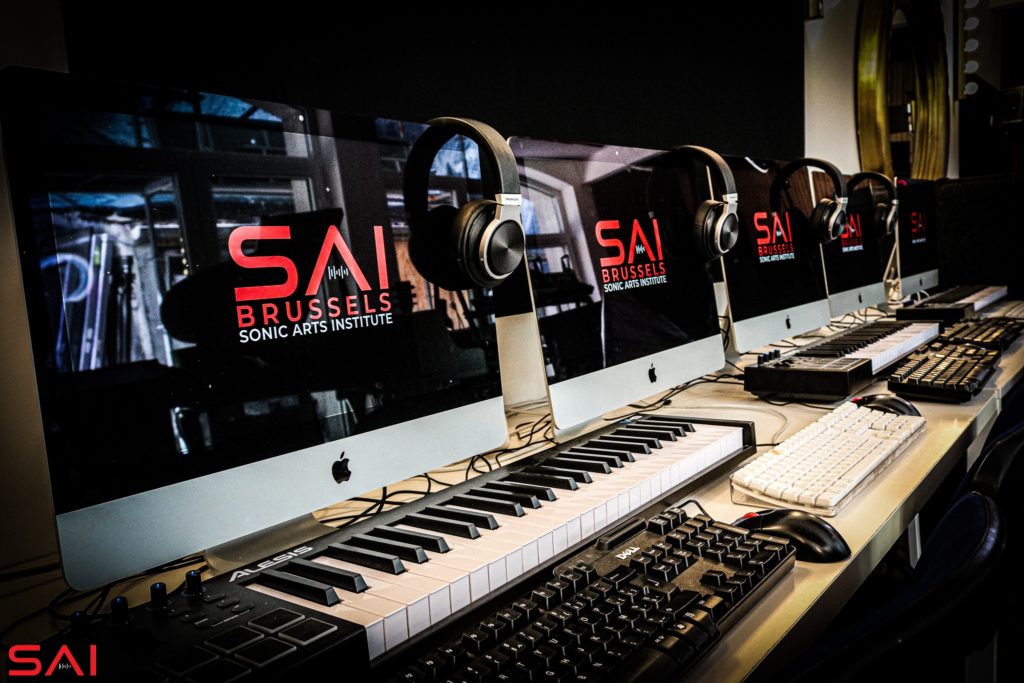
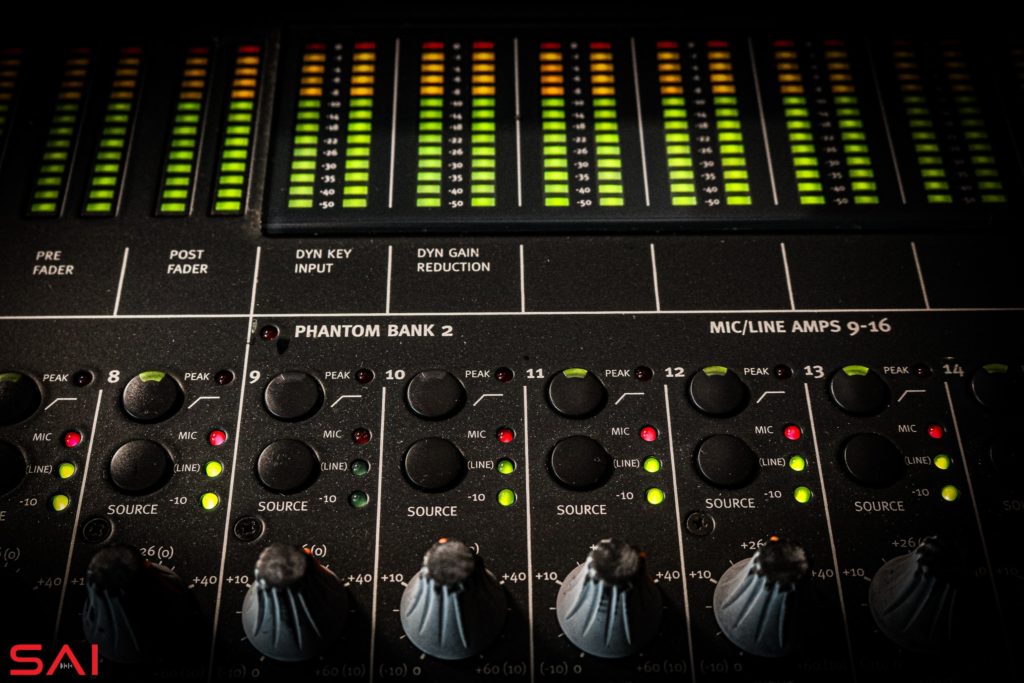
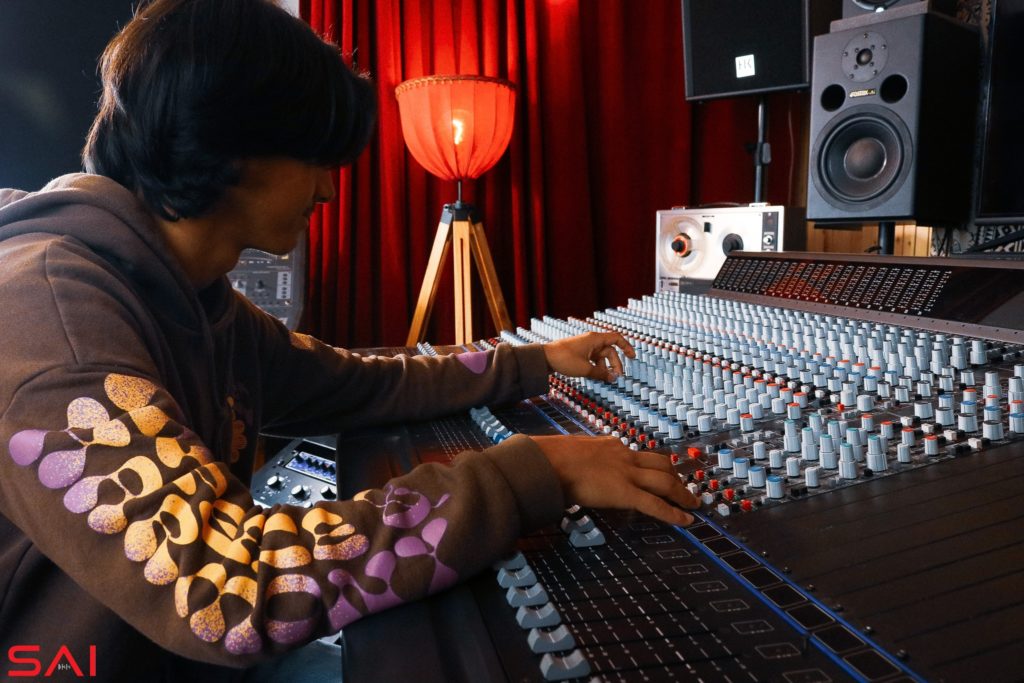
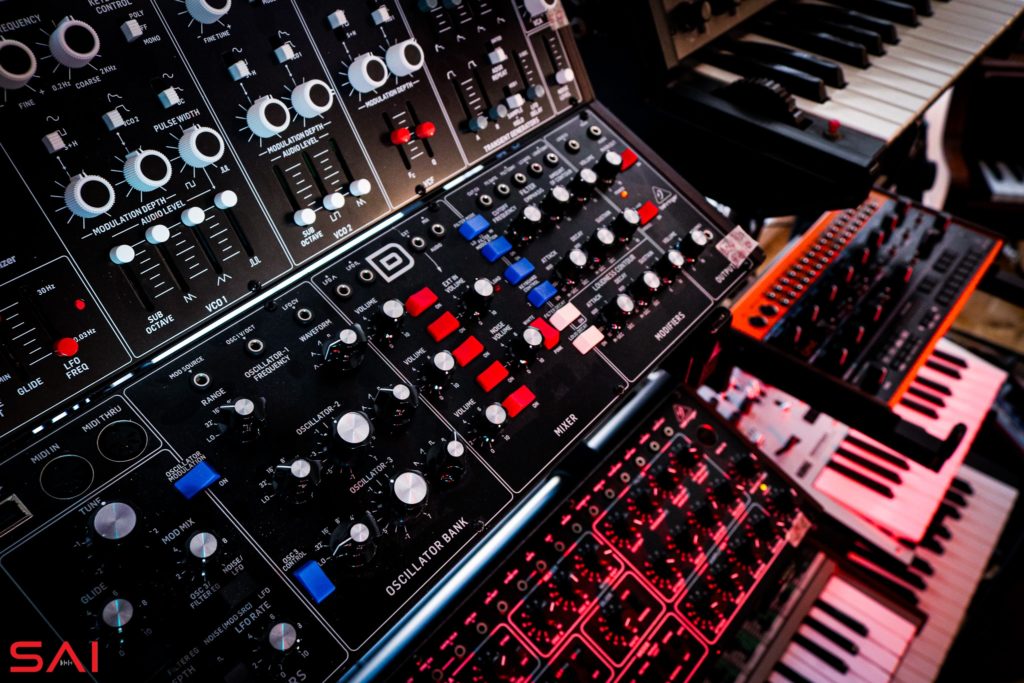
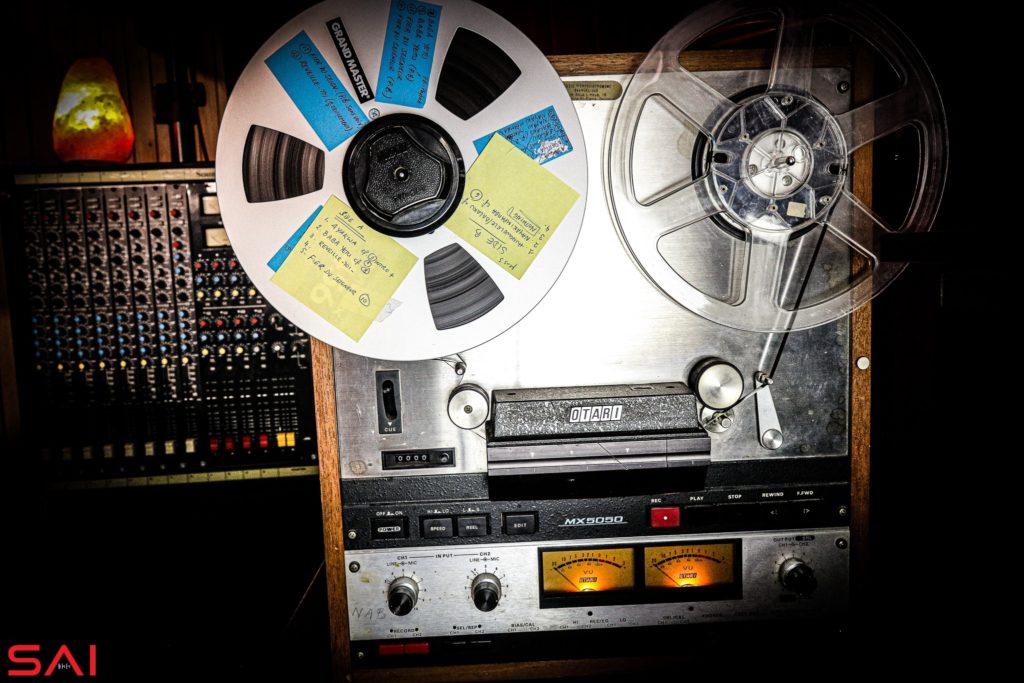
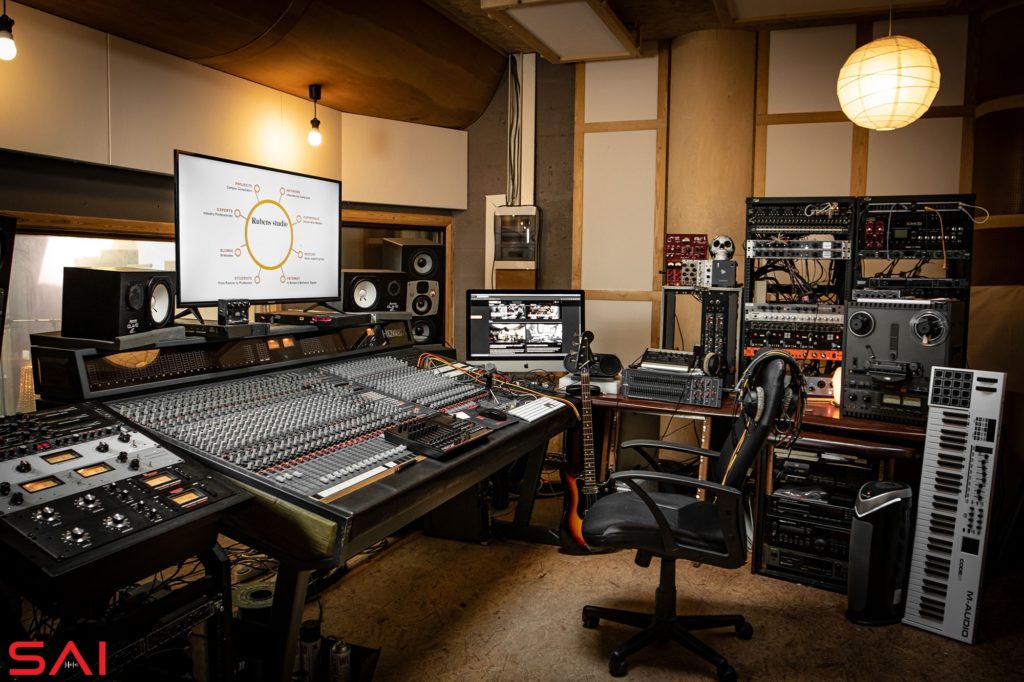
THE TEAM

Sound Engineer 1-2
Paul-Edouard is a Grammy Nominated Recording Engineer and Mixer. Starting in-house engineer at ICP Studios for more than eight years before choosing to run free, he worked with a wide range of projects and artists.
Credits include such local and international headline acts as Pharrell Williams, Empire of the Sun, Wolf Alice, Mika, Suede, Charlie Winston, Benjamin Biolay, Loïc Nottet, Girls in Hawaii …
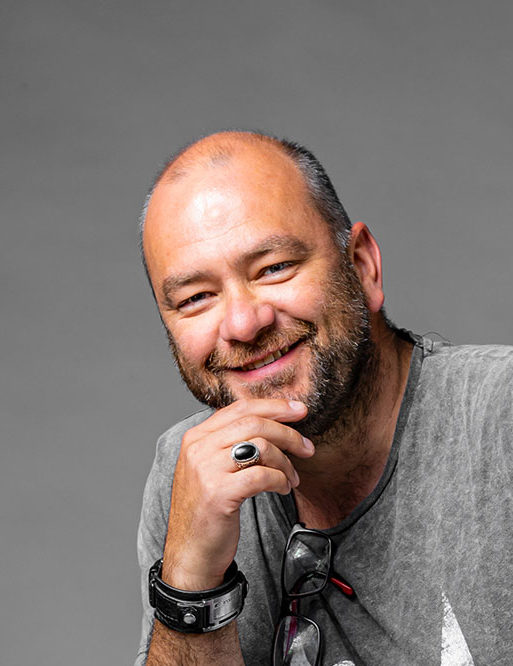
Campus Manager
Sound Engineer 1-2-3
Joël Grignard has worked with many artists (Iggy Pop, Monsoon, Catherine Graindorge, MY TVis DEAD,…) on stage and in the studio as a sound engineer, music producer, musician (multi-instrumentist), composer (music, cinema).
He is the Campus Manager of Sonic Arts Institute Brussels, the owner of Rubens Studio and label Manager of dEPOT214 Records.
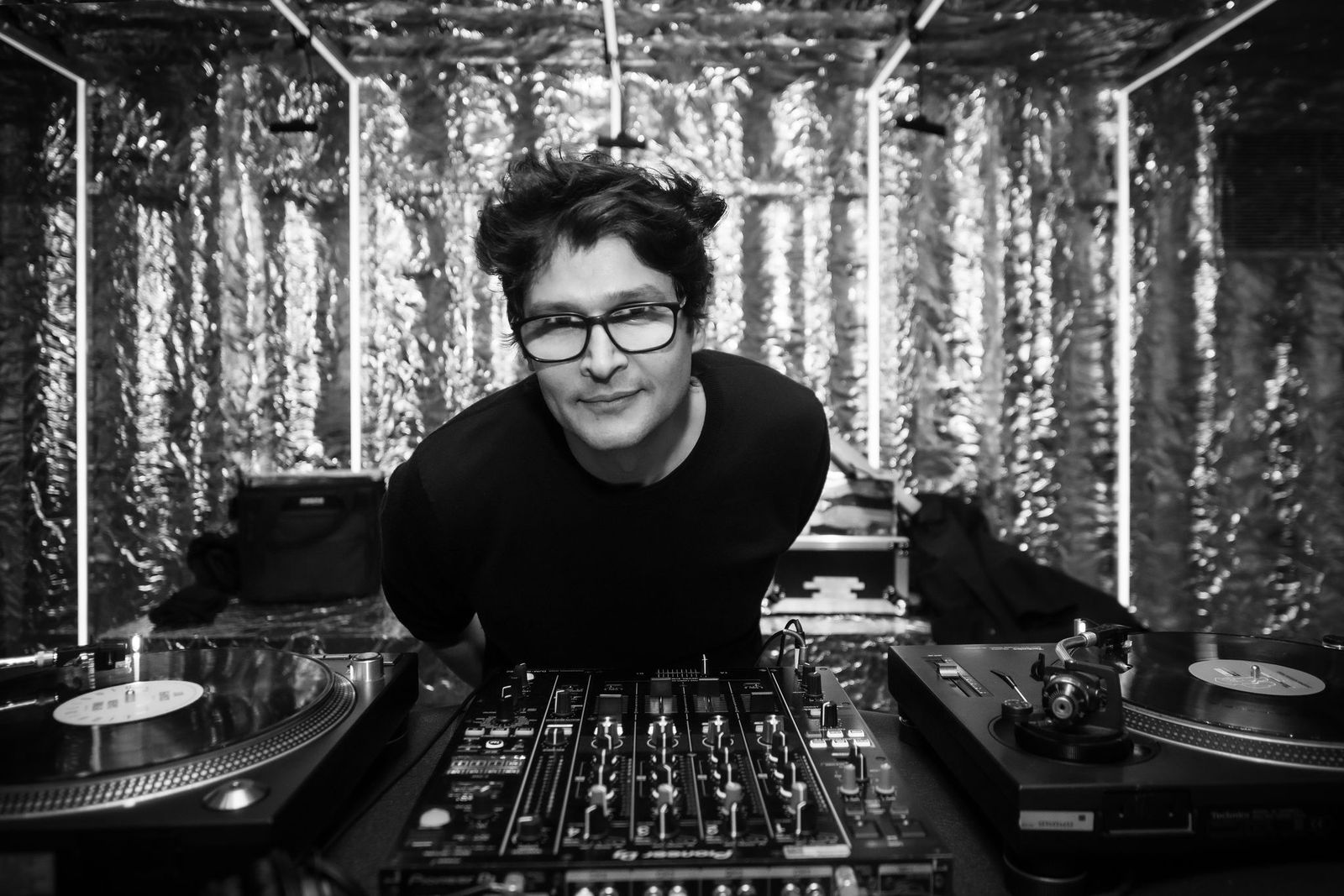
DJ Darko
DJing
*Photo Mathieu Ridelle
With a career spanning decades, Darko has been a key figure in electronic music. He curated the Brussels Electronic Music Festival (BEMF), ran the iconic Statik Dancin’ nights, and has designed soundtracks for global fashion brands like Vuitton, Rykiel, Barbara Bui etc. Whether behind the decks, on the radio, or in the press, he’s been at the forefront of musical innovation always looking for the edgiest sounds.
Are you ready to immerse yourself in the world of DJing, guided by a true veteran of the electronic music scene? This year, Darko celebrates 40 years of DJing, a career that has taken him across the globe and seen him perform alongside legends like Ricardo Villalobos, Richie Hawtin, Luciano, Steve Bug, Michael Mayer, Laurent Garnier, Carl Craig, Paul Kalkbrenner and many more. Darko brings a storyteller’s perspective, drawing from his experience as a journalist who has interviewed icons like Aphex Twin, Moby, Daft Punk, Laurent Garnier, and more. You’ll hear firsthand accounts of the artists and scenes that shaped modern music.
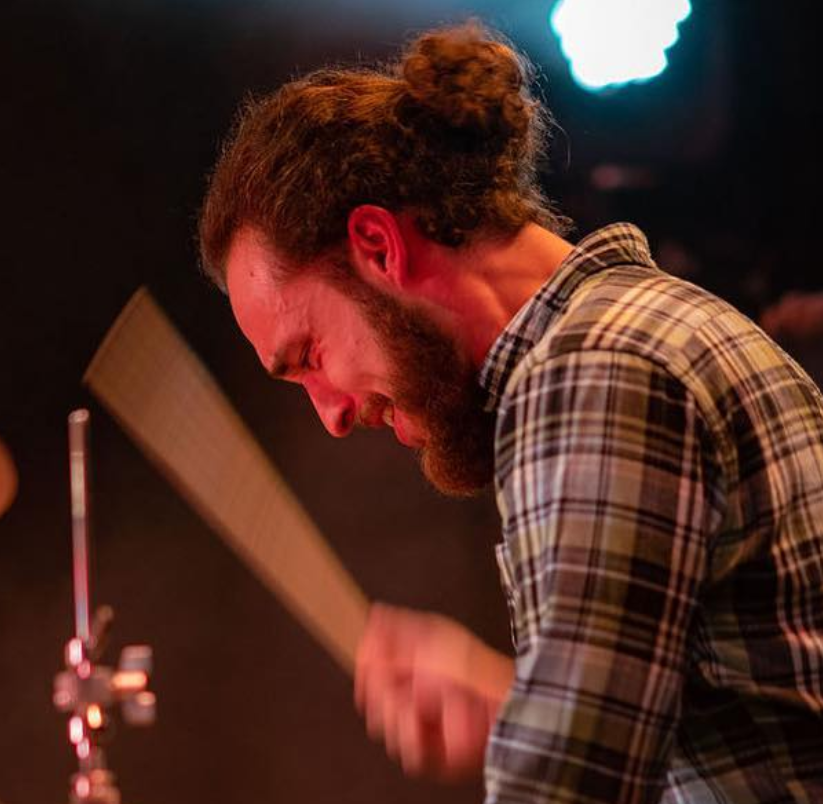
Beat Design
Composition & Arrangement
Drummer, vibraphonist and percussionist from Brussels, Belgium, born in 1994 in the Charleroi area.
Active as a professional musician and beat designer since 2013, Sébastien regularly performs on stage with numerous musical projects. From classical to jazz, including reggae, funk, French song, electronic music and pop, Sébastien Peeters is a multi-instrumentalist fond of many musical styles.
With these few projects, he had the opportunity to play in many countries including Belgium, France, Germany, Switzerland, Italy, Malaysia, the Maldives and South Korea.
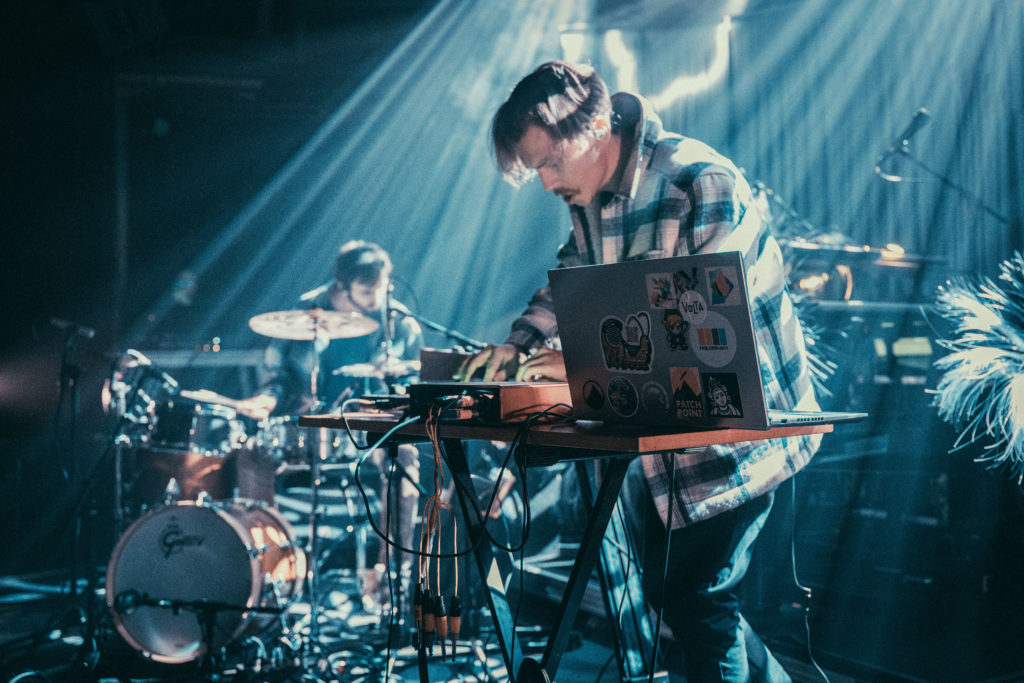
Sound Design
Composition & Arrangement
Alex Lesage is an electronic musician from Brussels who primarily works with analog equipment to create a diverse range of experimental dance tracks.
His early work in IDM gradually transitioned into more club-oriented electro-house releases. Often focusing on a deliberate selection of sounds, influenced by his jazz background, he crafts intricate and conceptually-driven pieces through improvisation. He explores the interplay between technology, social themes, and music, resulting in a unique blend of ambient and electronic elements in his recent works.
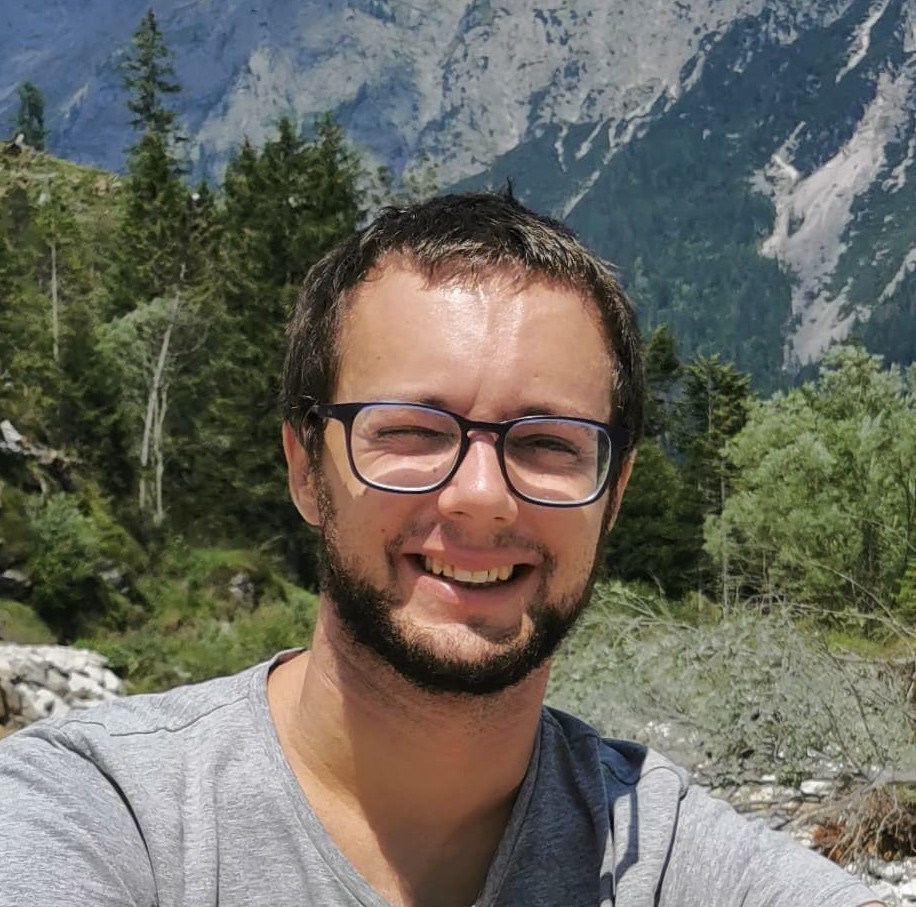
Studio Technician
Sound Assistant
Maxime Van Damme is a composer and sound engineer.
He started to compose music for media and later continued to learn the audio engineer techniques at Rubens Studio where he now works as sound engineer and studio technician.
He shares his knowledge about the studio to the students during their cursus at the SAI Brussels.
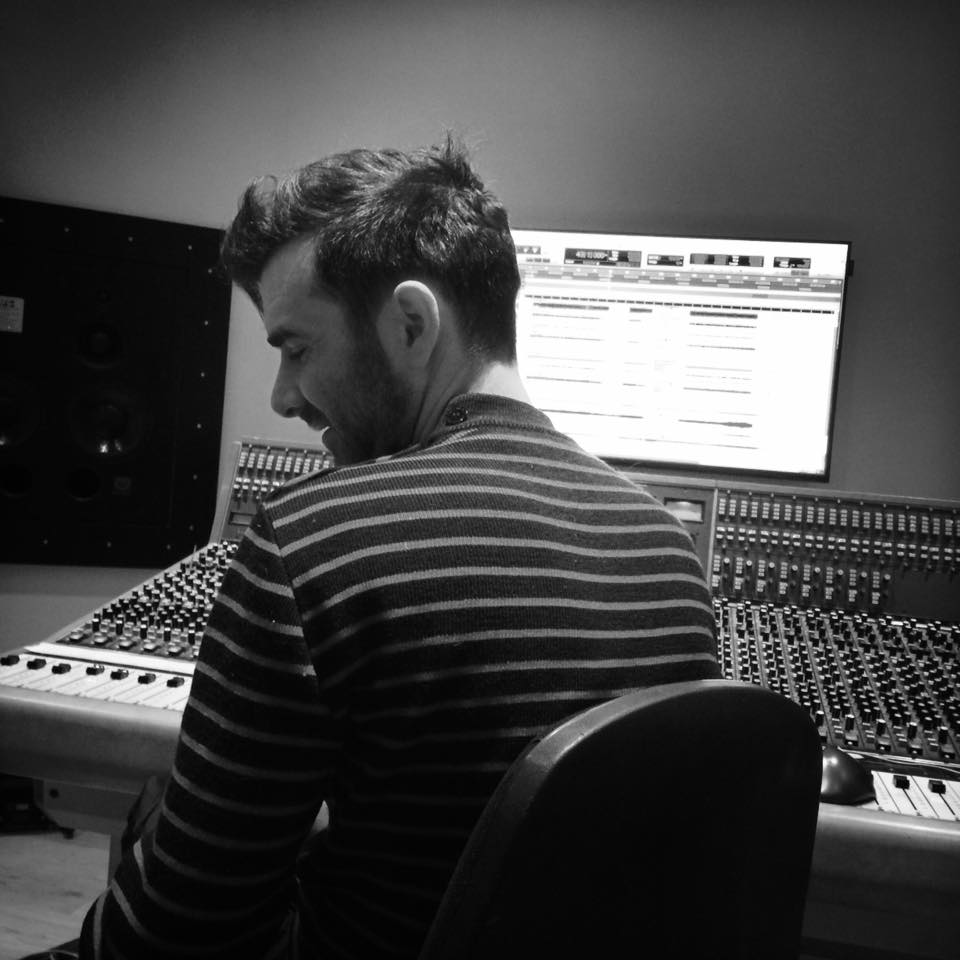
Live Mixing
Vincent Poujol is a recognised expert in the field of live sound and music production. With years of experience as a sound engineer specialising in live mixing, he has forged a reputation as a rigorous, creative and passionate professional.
Over the course of his career, Vincent has collaborated with renowned artists : Applause, Jawhar, Derya Yıldırım, Ammar 808, La Chiva Gantiva, Yasmine Hamdan, Françoiz Breut, Tristan Nihouarn, Daniel Presley, Avalanche Kaito, …
His mastery of technological tools and acute sense of sound dynamics enable him to deliver sound performances that are both captivating and technically impeccable.
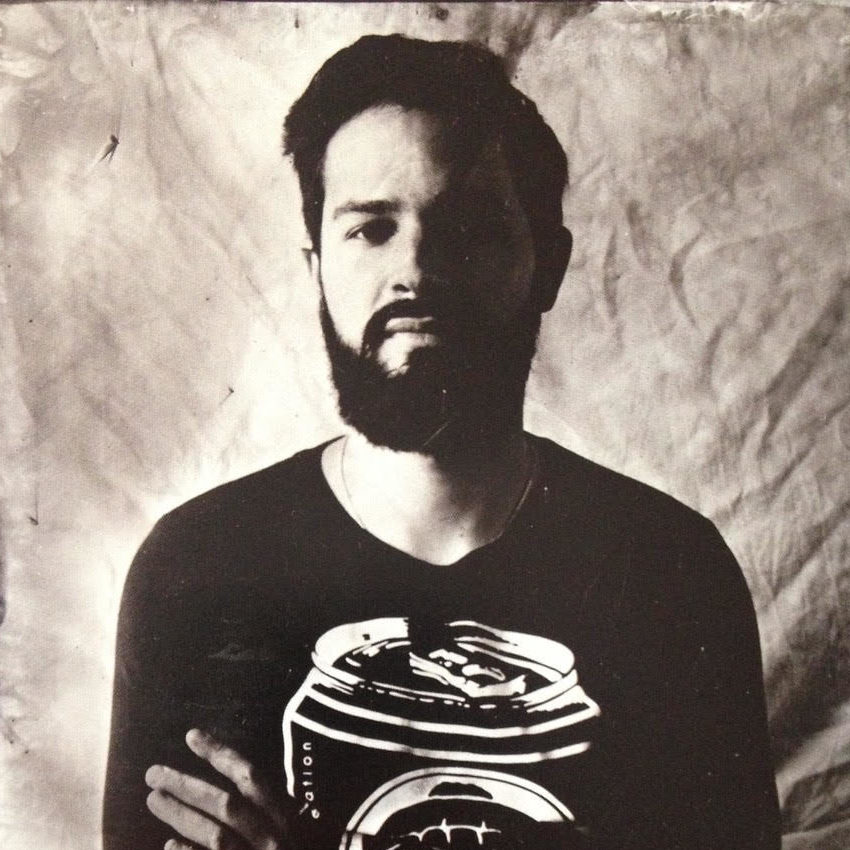
Music Manager
Benjamin Fournet began his career in England as programmer of the BRASS DURHAM INTERNATIONAL Festival for 2 years, and as a booker at Pyrprod and co-programmer of the Oeno Music Festival for more than 8 years.
Within this French company from Dijon, he was in charge of the entire booking catalog including Tryo, La Rue Ketanou, Archimède, Ours and knew how to build an international roster (Black Uhuru, Heymoonshaker, Vandaveer), as well as develop young French artists having today multiple gold records (Gauvain Sers, Boulevard des Airs).

Contact
To get in touch, fill in the form below and we will get back to you by email. Check also the planning of our next open days such that you can visit the place and see for yourself what expects you if you embark on this journey ! The schedules are available via social media and you can also subscribe to our mailing list – you’ll receive in all cases invitations to our extra curriculum seminars and workshops happening all year round !

